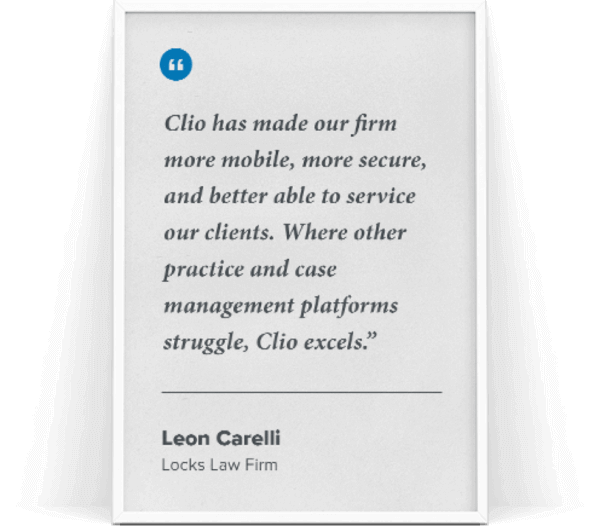New business is key to any law firm’s success. That’s why finding ways to reach potential new clients is essential—but you need to follow the rules when it comes to advertising as a lawyer. Following the lawyer advertising rules for your area isn’t just a good idea: It’s mandatory if you want to avoid unethical attorney advertising and the potential consequences.
Knowing the lawyer advertising rules that apply to you is also critical in today’s digital age. From social media to law firm websites, advertising online to connect with clients is increasingly common for lawyers. And, with more business being conducted remotely, the ability to attract clients using digital marketing strategies is more important than ever.
No matter what medium you use to advertise, the first thing you need to do before implementing any marketing or advertising strategy is to know the lawyer advertising rules and responsibilities that apply to you—and follow them. This blog post will help give you a general understanding of best practices and advertising rules for lawyers, but it’s critical to find your own jurisdiction rules.
Are lawyers and law firms allowed to advertise?
In short, yes. Lawyers are allowed to advertise, but they need to follow legal advertising rules and ethical obligations. The American Bar Association (ABA) Rule 7.2 on Communications Concerning a Lawyer's Services specifies that a lawyer can communicate information about their services through any platform, but there are rules about what they can share.
It’s a good idea to review the ABA rules, then look to your state’s bar association.
Below, we’ll review eight legal advertising best practices to consider.
1. Never say you’re an expert
Words matter, so be careful what you call yourself. Even if you have a high level of expertise, it’s generally against the rules to call yourself an “expert” or “specialist” unless you have been formally certified or accredited as such. According to the ABA Rule 7.2, lawyers should not imply that they are a specialist in a legal practice area, unless they have actually been certified as so by an ABA-accredited organization authorized by their state, district, or U.S. Territory.
So, while it may be okay to say that you are focused on a certain area of the law such as appellate law, you can’t say you are an appellate law specialist or expert in appellate law unless you’ve been certified as such in your area. For example, the requirements to be considered a legal specialist in California include practicing law continuously for a set number of years, with a set portion of time dedicated to practicing in the specialty area, and having attorneys and judges that know you evaluate your work in your specialty area of law.
2. Don’t make false or misleading statements
Outright lying when advertising your law firm is a big no-no. But it’s not just blatant lies that could be perceived as unethical attorney advertising. False, misleading, or misdirecting statements about things like the services you offer, the results you’ve received, or even the fees that you charge can also break legal advertising rules.
Using superlatives like “the best,” “the most,” or “the lowest” when advertising could be construed as deceptive. While you may feel that your firm is truly the best, saying something that cannot be quantified could mislead potential clients—and break legal advertising rules. For example, posting on your law firm website that your firm has “the cheapest fees anywhere” is misleading. But if your firm allows clients to pay with credit cards and payment plans, you could say your firm provides clients with flexible payment options.
In California, for example, the rules on statements in lawyer advertisements are clear. The State Bar of California’s rules on advertising note that communication or solicitations should not contain statements (in any form) that are untrue, confusing, deceiving, or misleading to the public.
Be careful with making technically true statements, but omit information that could still make them misleading. For example, it’s misleading to advertise free consultations if you offer free five-minute consultations, but charge a fee for anything longer (and your average consultation time is 30 minutes).
You may like these posts
3. Know whether you need an office address

Cloud-based software like Clio Manage and Clio Grow make it easier to conduct business and work effectively remotely. But you may still need a physical office address to advertise (whether through a traditional ad, a law firm website, or other digital marketing methods)—even during the COVID-19 pandemic. For these reasons, we recommend checking the advertising rules for lawyers in your area to avoid unintentionally breaking the rules.
In Florida, for example, according to Rule 4-7.12(a)(2), all lawyer advertisements must have a real office location in the same city, town, or county of the lawyer performing the advertised legal services.
Lawyer advertising rules related to a geographical office location may also require you to include the address in your advertisement. This could mean you need to post a physical office address on your law firm’s website.
4. Make sure testimonials follow the rules

Positive recommendations from past clients can be a powerful tool for attracting potential new clients, but it’s again important to know and follow the correct lawyer advertising rules for your jurisdiction before posting testimonials on your law firm website.
While the rules may vary for your area, ABA Rule 7.2 (b) offers a good best practice, noting that lawyers cannot compensate anyone for recommending their services in any way. Essentially, anyone recommending your legal services should be doing so on their own accord.
This means that you cannot pay or compensate clients in exchange for testimonials. You should also check for any specific rules about using testimonials on your law firm website or in advertising. This could include testimonials that might be considered misleading (and thus considered an advertisement with a false or misleading statement).
The State Bar of California’s Comment [4] to the new Rule 7.1 for attorney advertising, for example, specifies that testimonials also can’t make potential clients expect the same results. Lawyer advertisements should not lead potential clients to expect to receive the same results as the person giving the testimonial.
5. Know whether you can use a trade name before using one
Because many jurisdictions have rules for identifying information that must be included in attorney advertisements to prevent misleading the public, it’s important to know if it’s permitted to use a trade name before you try to.
In New York, for example, practicing under a trade name is not allowed. For example, The New York State Bar’s Ethics Opinion 1017 highlights that law firms can use the law firm partners’ first initials of the last names, as this would not be violating the New York Rules of Professional Conduct.
Can a lawyer advertise contingent fees?
In short, yes, but rules vary by jurisdiction. Most U.S. states allow it if the ad is truthful, not misleading, and follows state bar regulations. Some states require disclaimers about client costs like court fees. Contingency fees are typically prohibited in criminal defense and family law. Lawyers should review state bar guidelines for compliance.
6. Don’t directly solicit your services
There’s a difference between advertising your legal services—which is allowed if you follow the rules—and soliciting your services—which is generally prohibited.
What’s the difference between attorney advertising and attorney solicitation? Attorney advertising and solicitation are both used to try to retain business for a lawyer or law firm—but they differ in how directly they are targeted.
- Attorney advertising is a communication made by or on behalf of a lawyer or law firm about a lawyer or firm’s available services.
- Attorney solicitation is an advertisement made by a lawyer or law firm that is targeted to a specific person or group—which may be unethical. According to the ABA Rule 7.3 regarding Solicitation of Clients, a lawyer or law firm cannot direct any advertising communication to a specific person who needs legal services for a certain matter, and offer to provide legal services for that particular matter.
While advertising your services is permitted (as long as rules are followed), you can’t use advertising communications to directly solicit your services. The ABA Rule 7.3 highlights that lawyers cannot solicit their services in person towards a targeted individual if the lawyer’s goal is financial gains for the lawyer or law firm. If the advertising communications are directed to the public, it is not considered a solicitation.
This means that lawyers can advertise their services to a general audience online or through traditional advertisements. Responding to information requests or having their law firm’s website show up organically on search engines is also allowed.
7. Know what information can and can’t be included in advertisements

When it comes to advertisements, there may be minimum requirements for information that must be included—as well as specific types of information that can’t be included. Here are some examples of types of information that you may be able to include (be sure to check the rules for your area!):
- Identifying details. Certain identifying information, for example, may be required for the lawyer advertising rules in your jurisdiction. In the case of Florida, the Florida Bar’s advertising rules (Rule 4-7.12(a)(1)) specify that lawyer advertisements must call out the name of at least one lawyer (or name the law firm), while ads for providers (like lawyer referral services) must name the qualifying provider. Some states may also require advertisements to be explicitly identified as advertisements (New York, for example, has rules for certain ads that must be labeled “Attorney Advertising.”)
- Publications and awards. Law-related or legal industry publications or accolades may be allowed.
- Memberships. Current bar association or other professional association memberships.
- Rates and prices. You may be able to post the hourly or fixed rates you charge.
When it comes to what can’t be included in advertisements, it’s important to know the specific lawyer advertising rules for your area so you can stay compliant. Here are some types of information that may not be allowed:
- Pending case information. Rule 7.1 of the New York Rules of Professional Conduct specifies to avoid including testimonials from clients with pending matters (unless you have received informed client content in writing).
- Fictitious details. Rule 7.1 of the New York Rules of Professional Conduct also prohibits lawyers from using made-up or fictitious law firms or lawyers in their advertisements.
- Faux documents. Don’t include fake legal documents in your lawyer advertising.
8. Know how long you need to keep copies
Depending on your jurisdiction, advertising rules for lawyers may require you to retain copies of advertisements (both physical and digital) for a certain amount of time.
In New York, for example, Rule 7.1 requires lawyers and firms to keep copies of advertisements for at least three years after their initial dissemination, and copies of ads in computer-accessed communications for at least one year. For law firm websites containing advertising, New York requires that the site’s content (initial or after any major redesign or content change) be preserved at least every 90 days.
Conclusion
The way that lawyers conduct business is rapidly changing, and so is how they advertise. As more and more lawyers use digital communication to connect with potential new clients, they must be up-to-date on the lawyer advertising rules that apply to them—so you don’t accidentally violate them. By knowing the correct legal advertising rules, you can create effective, ethical advertising—and attract new clients, new business, and greater success in the future.
Note: The information in this article applies only to US practices. This post is provided for informational purposes only. It does not constitute legal, business, or accounting advice.
Is it unethical for a lawyer to advertise?
As long as lawyers follow legal advertising rules, it’s not unethical to advertise. The American Bar Association (ABA) Rule 7.2 on Communications Concerning a Lawyer’s Services specifies that a lawyer can communicate information about their services through any platform. However, there are rules about what information they can share.
What are the rules for legal advertising?
The American Bar Association (ABA) has rules on advertising that all lawyers should review. Additionally, it’s wise to check in with your state bar association on their recommendations for marketing and advertising.
What kinds of media can lawyers advertise under the ethics rules?
Lawyers should consult the The American Bar Association’s (ABA) rules on marketing and advertising to ensure they’re using ethical forms of media to promote their services to prospective clients. It’s also a good idea to seek confirmation from your state bar association.
What is a legal advertisement letter?
A legal advertisement letter is a formal document used by law firms or attorneys to promote their services while complying with legal advertising regulations. It can be sent to potential clients, businesses, or the general public to inform them about legal services, special offers, or important legal updates. These letters must adhere to ethical guidelines set by state bar associations, ensuring they are truthful, not misleading, and do not create unjustified expectations. Common uses of legal advertisement letters include notifying individuals of class action lawsuits, offering legal consultations, or marketing specialized legal expertise.
We published this blog post in January 2021. Last updated: .
Posted in: Marketing









